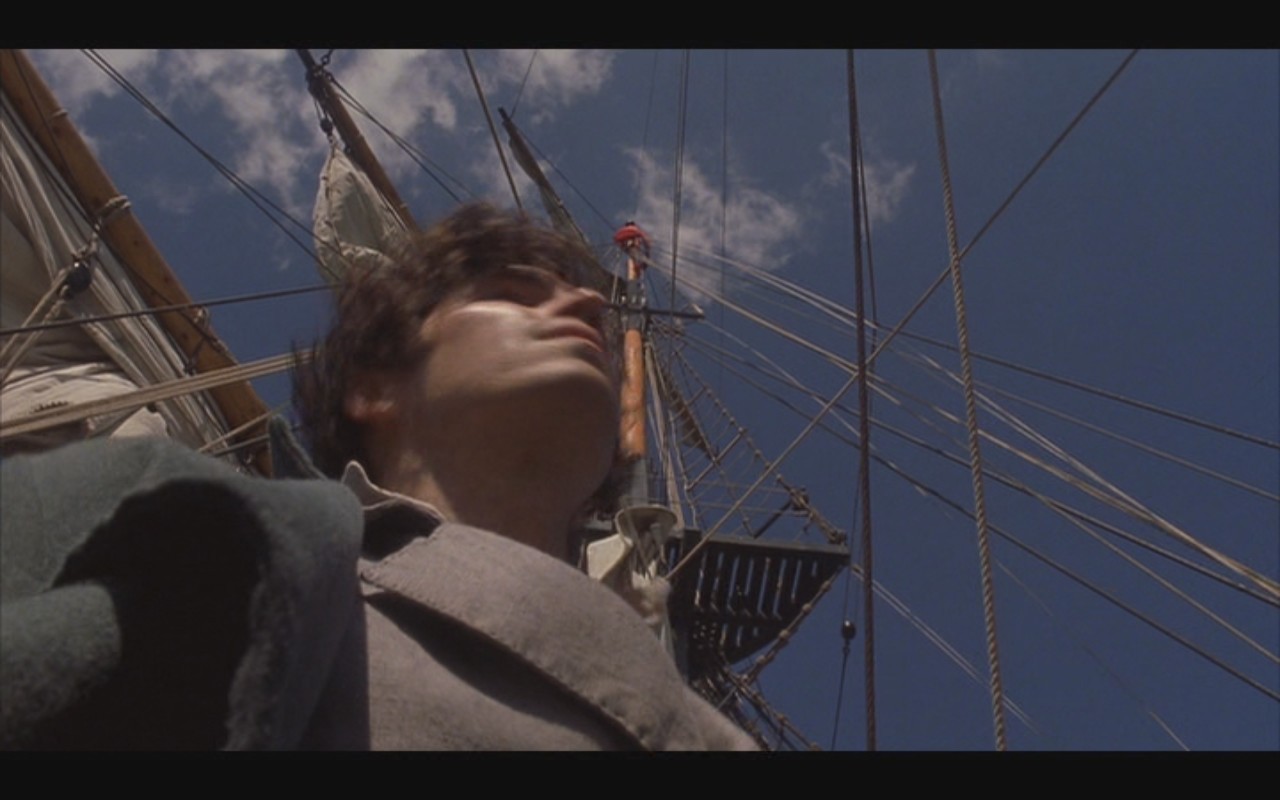A Critical Examination Of The Count Of Monte Cristo

Table of Contents
The Allure of Revenge: A Central Theme in The Count of Monte Cristo
Edmond Dantès's journey forms the heart of The Count of Monte Cristo. Wrongfully imprisoned and robbed of his happiness, he transforms from an innocent, hopeful sailor into the cunning and vengeful Count of Monte Cristo. This transformation highlights the novel's exploration of the moral complexities of revenge. Is revenge ever truly justified? Dumas doesn't shy away from presenting the ethical dilemmas inherent in Edmond's actions.
The Count's revenge is meticulously planned, a testament to his intellect and determination. He utilizes his newfound wealth and knowledge to manipulate his enemies, subtly weaving a web of deceit that ensnares each of them. However, the psychological impact of his actions is profound, not only on his victims but also on himself. The question of whether his pursuit of vengeance ultimately brings him peace or further torment is a central theme explored throughout the narrative.
- The meticulous planning of his revenge: Dumas masterfully portrays the Count's calculated steps, showcasing his strategic thinking and patience.
- The psychological impact of his actions on his victims: The novel vividly depicts the emotional turmoil and suffering inflicted upon Fernand Mondego, Danglars, and Villefort.
- The ethical questions raised by his pursuit of vengeance: Dumas compels readers to contemplate the morality of revenge and its long-term consequences. Does justice truly lie in retribution?
Exploring Justice and Injustice in Dumas's Masterpiece
The Count of Monte Cristo offers a sharp critique of the French justice system, exposing its flaws and vulnerabilities. Edmond's wrongful imprisonment underscores the fragility of justice and the potential for abuse of power. The novel explores the concept of poetic justice, where characters ultimately receive a fitting punishment for their actions, but also questions whether the Count's brand of retribution truly constitutes justice.
The blurred lines between justice and revenge are a key element of the story. While the Count seeks to punish those who wronged him, his methods often cross the line into cruelty and manipulation. This raises questions about the nature of justice itself and whether it can ever truly be separated from revenge.
- The wrongful imprisonment of Edmond Dantès: This pivotal event sets the plot in motion and highlights the injustices within the system.
- The various forms of injustice faced by the characters: The novel explores various forms of injustice, from betrayal and false accusations to social inequality and political corruption.
- The blurred lines between justice and revenge: The novel constantly probes the complex relationship between these concepts, challenging the reader to define where one ends and the other begins.
Character Development and Relationships in The Count of Monte Cristo
Edmond Dantès's transformation is one of the novel's most compelling aspects. His journey from a naive and optimistic young man to a sophisticated and vengeful Count is a testament to Dumas's skill in character development. The relationships between the Count and his victims and allies are equally fascinating, exploring the complexities of human interaction and the impact of betrayal and forgiveness.
Fernand Mondego and Mercédès, two characters central to Edmond's life, exemplify the novel's exploration of complex characters. Their motivations and flaws are intricately woven into the narrative, providing a nuanced portrayal of human nature.
- Edmond's transformation from a naive sailor to a cunning mastermind: This transformation is gradual yet impactful, showcasing the devastating effects of injustice and the human capacity for adaptation.
- The motivations and flaws of the supporting characters: Each character is richly developed, with their own ambitions, weaknesses, and motivations.
- The impact of betrayal and forgiveness on character arcs: The novel explores how betrayal shapes the characters' actions and how the possibility of forgiveness influences their destinies.
The Enduring Legacy and Adaptations of The Count of Monte Cristo
The enduring popularity of The Count of Monte Cristo stems from its timeless themes and compelling narrative. The story's exploration of revenge, betrayal, and redemption continues to resonate with audiences, regardless of cultural background or historical context. The novel's memorable characters and intricate plot have inspired countless adaptations, each offering a unique interpretation of Dumas's masterpiece.
From classic film adaptations to modern television series, The Count of Monte Cristo has captivated audiences across generations. These adaptations, while varying in style and interpretation, demonstrate the enduring power of the original story and its ability to adapt to new contexts.
- The timeless themes of revenge, betrayal, and redemption: These are universal themes that continue to resonate with readers and viewers.
- The compelling narrative structure and memorable characters: The well-structured plot and relatable characters contribute to the novel's lasting appeal.
- The various adaptations and their impact on audiences: The diverse adaptations showcase the novel's versatility and enduring relevance.
Conclusion: A Final Verdict on The Count of Monte Cristo
The Count of Monte Cristo remains a powerful and enduring work of literature, captivating readers with its thrilling plot, complex characters, and timeless themes. Its exploration of revenge, justice, and the human capacity for both good and evil continues to resonate with audiences today. The novel's enduring legacy is a testament to Dumas's masterful storytelling and the enduring appeal of a story that expertly blends adventure, intrigue, and moral complexity.
Dive deeper into the world of The Count of Monte Cristo – read the novel, watch a film adaptation, or explore further critical analyses to fully appreciate this literary masterpiece. Engage with discussions about The Count of Monte Cristo and share your own insights on this captivating tale of revenge and redemption.

Featured Posts
-
 Raiwaqa Fire Claims Womans Life
May 04, 2025
Raiwaqa Fire Claims Womans Life
May 04, 2025 -
 Trumps Tariffs And Their Effect On Norways Sovereign Wealth Fund Under Nicolai Tangen
May 04, 2025
Trumps Tariffs And Their Effect On Norways Sovereign Wealth Fund Under Nicolai Tangen
May 04, 2025 -
 Amidst Engagement Split Sydney Sweeney Enjoys African Safari With Friends
May 04, 2025
Amidst Engagement Split Sydney Sweeney Enjoys African Safari With Friends
May 04, 2025 -
 Interim Wbo Championship Fight Parker Vs Bakole
May 04, 2025
Interim Wbo Championship Fight Parker Vs Bakole
May 04, 2025 -
 Hong Kongs First Us Dollar Intervention Since 2020 Maintaining The Peg
May 04, 2025
Hong Kongs First Us Dollar Intervention Since 2020 Maintaining The Peg
May 04, 2025
Latest Posts
-
 Kentucky Derby 2025 Pace Prediction Key Horses And Their Impact
May 05, 2025
Kentucky Derby 2025 Pace Prediction Key Horses And Their Impact
May 05, 2025 -
 The 2025 Kentucky Derby Pace Scenarios And Their Implications
May 05, 2025
The 2025 Kentucky Derby Pace Scenarios And Their Implications
May 05, 2025 -
 Examining The 2025 Kentucky Derby Anticipating The Winning Pace
May 05, 2025
Examining The 2025 Kentucky Derby Anticipating The Winning Pace
May 05, 2025 -
 Kentucky Derby 2025 Factors Influencing The Race Pace
May 05, 2025
Kentucky Derby 2025 Factors Influencing The Race Pace
May 05, 2025 -
 Colonial Downs Stones Big Announcement The Virginia Derby Is Coming
May 05, 2025
Colonial Downs Stones Big Announcement The Virginia Derby Is Coming
May 05, 2025
